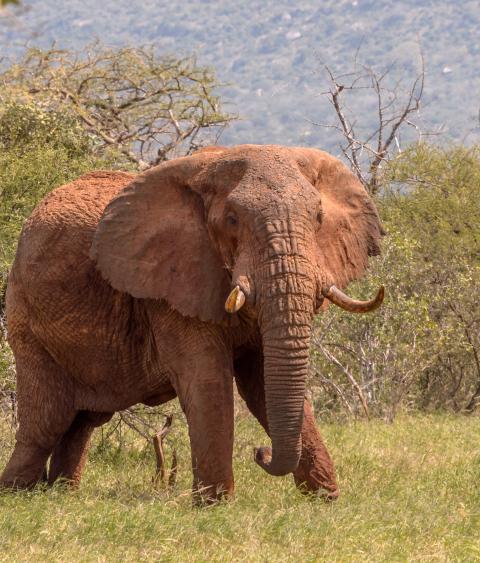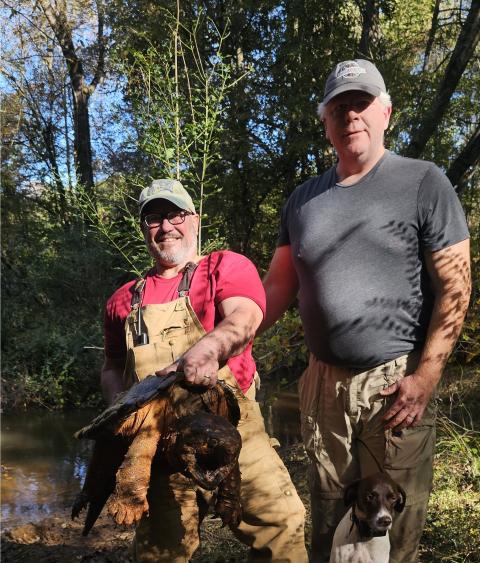Conservation Brief
FWS Releases Proposed MBTA Rule on Intentional Take
The U.S. Fish and Wildlife Service (FWS) announced on January 30 that it is proposing a rule to define the scope of the Migratory Bird Treaty Act (MBTA) to clarify that the law only covers intentional injury or death of migratory birds, their nests, or their eggs. The proposed rule codifies an opinion made in December 2017 by the Department of the Interior’s Solicitor’s Office (Solicitor’s Opinion M-37050) that the law was not intended to criminalize actions that result in the unintentional harm of migratory birds.
Specifically, the new regulation states: “The prohibitions of the Migratory Bird Treaty Act (16 U.S.C. 703) that make it unlawful at any time, by any means or in any manner, to pursue, hunt, take, capture, or kill migratory birds, or attempt to engage in any of those actions, apply only to actions directed at migratory birds, their nests, or their eggs. Injury to or mortality of migratory birds that results from, but is not the purpose of, an action (i.e., incidental taking or killing) is not prohibited by the Migratory Bird Treaty Act.”
The proposed rule notes that: “Codifying the Solicitor’s Opinion, M-37050, into Federal regulations would provide the public, businesses, government agencies, and other entities legal clarity and certainty regarding what is and is not prohibited under the MBTA. It is anticipated that some entities that currently employ mitigation measures to reduce or eliminate incidental migratory bird take would reduce or curtail these activities given the legal certainty provided by this proposed regulation. Others may continue to employ these measures voluntarily for various reasons, including continued compliance with other Federal, State, and local laws and regulations.”
“With five federal circuit courts of appeals divided on this question, it is important to bring regulatory certainty to the public by clarifying that the criminal scope of the MBTA only reaches to conduct intentionally injuring birds,” said Assistant Secretary for Fish and Wildlife and Parks Rob Wallace in a statement. “That said, we will continue to work collaboratively with states, cities, conservation groups, industries, trade associations and citizens to ensure that best practices are followed to minimize unintended harm to birds and their habitats.”
However, a variety of conservation organizations have expressed opposition to the proposed rule. On February 11, a group of 15 former Department of the Interior and FWS officials submitted a letter to Interior Secretary David Bernhardt urging him to suspend the rule making process. They wrote: “Under the previous interpretation, the MBTA was successfully used to reduce gross negligence by companies that simply do not recognize the value of birds to society or the practical means to minimize harm. All the past administrations for which we have worked struck a balance and worked diligently and in good faith with industries that had significant impacts on birds, such as oil and gas, coal, electric utilities, commercial fishing, communications, transportation, and others to reasonably address unintended take. Career professionals and political leadership in the U.S. Fish and Wildlife Service, the Department of the Interior, and Department of Justice have always exercised sound judgment to ensure that the law is justly enforced. Your proposal to codify the new interpretation of the MBTA not only needlessly undermines a history of great progress, but it subverts our nation’s obligation to protect migratory birds that we have honored for over a century.”
Concurrent to the consideration of the proposed rule, the FWS will conduct an environmental impact statement to evaluate the potential impacts of this action. The notice of intent to proceed with the EIS process and the proposed rule were published on February 3, opening a 45-day scoping process to gather public input on the actions. Comments can be submitted through the Federal eRulemaking Portal for Docket No. FWS-HQ-MB-2018-0090 until March 19.



